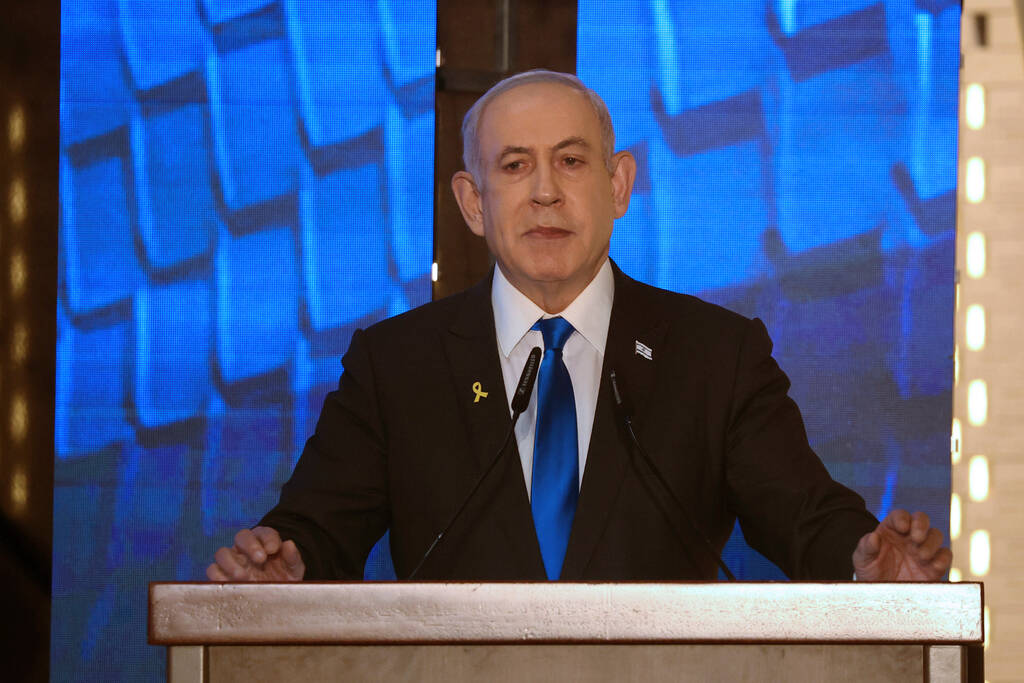Netanyahu acknowledges ‘tragic mistake’ after Rafah strike

TEL AVIV, Israel — Israeli Prime Minister Benjamin Netanyahu acknowledged Monday that a “tragic mistake” had been made after an Israeli strike in the southern Gaza city of Rafah set fire to a tent camp housing displaced Palestinians and, according to the Hamas-run Health Ministry and and the Palestinian Red Crescent rescue service, killed at least 45 people.
Israel’s military had earlier said that it launched an investigation into civilian deaths after it struck a Hamas installation and killed two senior terrorists.
Israel insists it adheres to international law even as it faces scrutiny in the world’s top courts, one of which last week demanded that it halt the offensive in Rafah.
“Despite our utmost efforts not to harm innocent civilians, last night, there was a tragic mistake,” Netanyahu said Monday in an address to Israel’s parliament. “We are investigating the incident and will obtain a conclusion because this is our policy.”
In a separate development, Egypt’s military said one of its soldiers was shot dead during an exchange of fire in the Rafah area. Israel said it was in contact with Egyptian authorities, and both sides said they were investigating.
Netanyahu says Israel must destroy what he calls Hamas’ last remaining battalions in Rafah. The terrorist group launched a barrage of rockets Sunday from the city toward heavily populated central Israel, setting off air raid sirens but causing no injuries.
The strike on Rafah brought a new wave of condemnation.
The U.S. National Security Council said in a statement that the “devastating images” from the strike on Rafah “are heartbreaking.” It said the U.S. was working with the Israeli military and others to assess what happened.
French President Emmanuel Macron was more blunt, saying “these operations must stop” in a post on X. “There are no safe areas in Rafah for Palestinian civilians. I call for full respect for international law and an immediate cease-fire,” he wrote.
Qatar, a key mediator in attempts to secure a cease-fire and the release of hostages held by Hamas terrorists, said the Rafah strike could “complicate” talks, Negotiations, which appear to be restarting, have faltered repeatedly over Hamas’ demand for a lasting truce and the withdrawal of Israeli forces, terms Israeli leaders have publicly rejected.
The Israeli military’s top legal official, Maj. Gen. Yifat Tomer-Yerushalmi, said authorities were examining the strike in Rafah and that the military regrets the loss of civilian life.
Speaking to an Israeli lawyers’ conference, Tomer-Yerushalmi said Israel has launched 70 criminal investigations into incidents that aroused suspicions of international law violations, including the deaths of civilians, the conditions at a detention facility holding suspected Palestinian terrorists and the deaths of some inmates in Israeli custody. She said incidents of “violence, property crimes and looting” were also being examined.
Hamas triggered the war with its Oct. 7 attack into Israel, in which Palestinian terrorists killed some 1,200 people, mostly civilians, and seized some 250 hostages. Hamas still holds about 100 hostages and the remains of around 30 others after most of the rest were released during a cease-fire last year.
The overall Palestinian death toll in the war is now above 36,000, according to the Hamas-run Health Ministry in Gaza, which does not distinguish between fighters and noncombatants in its tally.